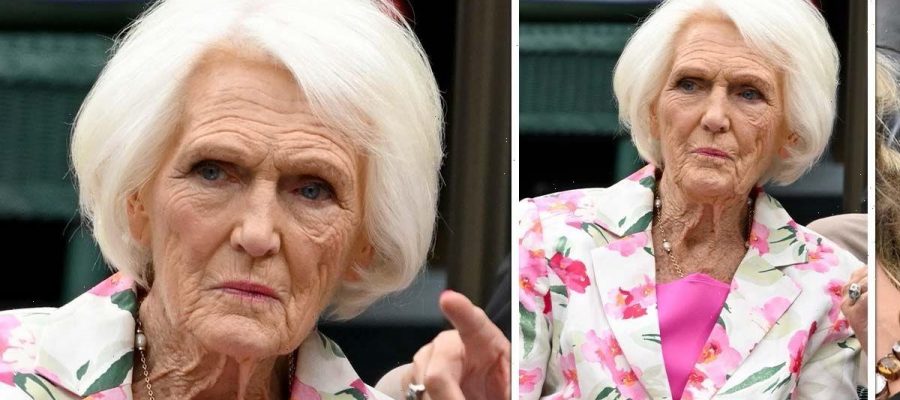GBBO: Matt Lucas jokes that Paul 'ate Mary Berry'
We use your sign-up to provide content in ways you’ve consented to and to improve our understanding of you. This may include adverts from us and 3rd parties based on our understanding. You can unsubscribe at any time. More info
The much-loved TV personality, 87, famous above all for the Great British Bake-off (GBBO) – has had bad health problems and personal tragedy over the years. She recently tripped over in her garden and was treated in hospital for a broken hip, and lost her son when he was 19 years old. But one health issue has affected her since childhood: polio.
People watching GBBO might notice something “funny” about her left hand.
It is the remnants of a polio infection she had at 13 years old.
Berry suffered from the disease for three months, separated from her parents by a glass shield.
“Everybody thinks I’ve got arthritis,” she recently told Radio Times.
“I look a bit funny when I’m rolling pastry, but I have no other difficulties whatsoever.”

Polio is a condition that was particularly rife in the 1940s and 1950s.
The condition is a serious viral infection that can attack the nerves of the spine and the bottom of the brain, causing paralysis.
In many cases, the paralysis isn’t permanent.
In the 1940s, some sufferers were even given what’s known as an “iron lung” – a huge metal box within which the patient lies. It is designed to protect their breathing with their breathing because of its constant suction force.
DON’T MISS:
“I was immensely fortunate. I only had it on my left side, and I’ve got a funny left hand,” she said of her own experience with the disease.
Today, cases of polio, which can be treated with a vaccine, are very low.
Berry is an advocate of this vaccine and believes it’s something everybody should have.
“If you’re in a hospital like I was, with people in callipers, people in pain, people who weren’t going to get better – I think that everyone should take the vaccine, and think of others,” she added.

The UK hasn’t experienced a case of polio since the 1980s, according to the NHS.
People with the condition tend to not have symptoms and may fight it off without realising they had it, the health body explains.
People infected with polio are likely to get it in several different ways.
The infection may come from contact with the faeces of someone infected or from droplets in the air which are released when someone infected sneezes.

The vaccination programme offered by the NHS is a routine childhood vaccination programme.
Children receive five different doses of the vaccine – the first when they are eight, 12 and 16 weeks old.
They will then go on to receive it at three years and four months old during school boosters, and then again when they are 14.
According to the World Health Organisation in March 2022, there are only two areas where poliovirus is still endemic, Pakistan and Afghanistan.
Source: Read Full Article
